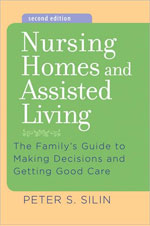If the Shoe Fits........
An 84 year old client of mine live in an assisted living facility. She has dementia, but is in many ways alert. She is physically healthy, and can be quite active, with the restlessness that people with dementia often have.
Her family bought her some new running shoes. She wouldn't wear them. The facility tried, but said she just takes them off. The family is upset when they came in to see her and she isn't wearing them.
When I went to see her last week, I looked at her footwear. Again, her slippers. The ankles are wobbly, and she could fall.
I asked her why she wasn't wearing her new running shoes.
"Because they're too tight," She told me.
I have done many things in my life, but I have never been a shoe salesman. Nonetheless, I went with her to her room, and asked if I could see how they fit. She sat on the bed, and I put on her shoes, and did up the laces.
I pressed down, the way shoe salespeople do, on the front of the shoe, to see where her toe came to.
Guess what? The shoe didn't fit.
Now, I don't know how she ended up with those shoes exactly. But I know that anyone in the facility, when putting them on, along the way, could have asked her about them., if they couldn't figure it out when putting them on her.
This is one of the reasons you might hire a Geriatric Care Manager.
Or a shoe salesman.



